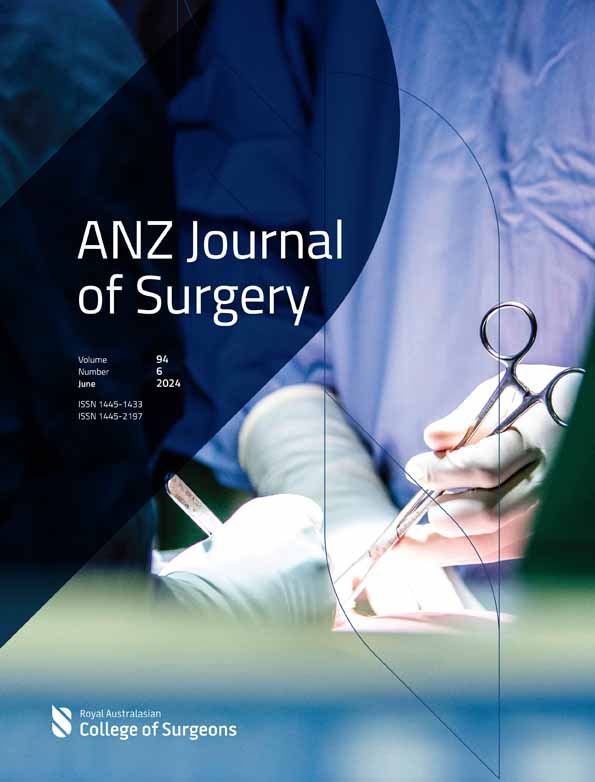Enhanced recovery after surgery for oncological breast surgery reduces length of stay in a resource limited setting
Jasmine Mui and Ernest Cheng are considered joint first authors.
Abstract
Background
Early recovery after surgery (ERAS) protocols in breast surgery optimizes resources and reduces healthcare costs by facilitating early discharges. These protocols are well established in tertiary centres, but not commonly adopted in regional centres. ERAS implementation potentially impacts smaller hospitals significantly, where resources are limited and persistent bed shortages with mounting waitlist pressures exist. Our study evaluates the feasibility of early discharge with the application of our ERAS protocol to mastectomies in a resource-constrained and rural setting.
Methods
Breast cancer patients who underwent mastectomies with or without reconstruction between January 2017 and July 2023 were retrospectively reviewed. From January 2022, we implemented a standardized ERAS protocol for patients undergoing mastectomy. This incorporated a combination of pre-, intra- and post-operative elements to enhance patient readiness for discharge. Our study compared these patients (post-ERAS group) with the outcomes of mastectomies performed prior to January 2022 (pre-ERAS group).
Results
104 patients were identified. In the post-ERAS group, 74.4% were discharged within 24 h compared to 23.1% in the pre-ERAS group. Length of stay was reduced from 2.26 to 1.42 days. There were no differences in unplanned clinician reviews or early representation to the emergency department between the two groups.
Conclusion
Reducing the length of stay without increased complications can be achieved in a resource-limited environment with our protocolized ERAS principals. Our protocol has been instrumental in allowing safe discharges within 24 h. Other regional centres may benefit in adopting strategies implemented by us for their own ERAS protocols in breast cancer surgery.
Conflicts of interest
None declared.




